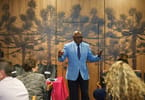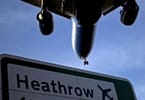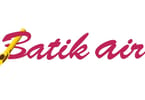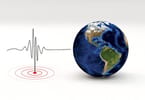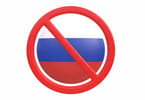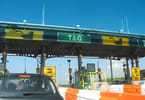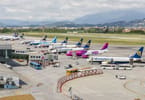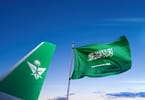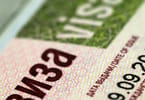WASHINGTON – The chief executives of Delta Air Lines Inc and Northwest Airlines Corp sought to reassure Congress on Thursday that their planned merger would not hurt service, cut jobs, or blunt competition.
Richard Anderson of Delta and Douglas Steenland of Northwest also told a hearing of the antitrust task force in the House of Representatives that the combination would enable the two to better compete as the industry struggles with skyrocketing fuel prices.
“Oil is a game changer,” said Anderson. “This merger makes us stronger when oil prices continue to increase.”
Northwest and Delta blamed a doubling of fuel prices in the past year for a combined loss of $465 million in the first quarter.
The executives stressed to lawmakers the merged company, to be run by Anderson and headquartered in Atlanta, would expand service and preserve its hubs.
“Our customers and the communities we serve will benefit because this is a merger of addition, not subtraction,” Steenland said.
They estimated fewer than 1,000 job losses as a result of the merger and none among front-line workers. Cuts would mainly address executive redundancies. Any job cuts, Anderson said, would be handled “in a gracious way.”
But combining the companies would have no material affect on ticket prices. Anderson said they would still be set by the market. Fares have steadily risen this year in response to higher fuel.
Regulatory approval of the merger seemed to be a foregone conclusion among lawmakers, who offered little push-back. Their questions focused mainly on job protection, union elections, service plans and passenger rights.
“We have an antitrust division that approves mergers left and right,” said House Judiciary Committee Chairman John Conyers, a Michigan Democrat.
“The department has not attempted to block or modify any major merger over the last seven years, including some of the largest, most controversial mergers among direct competitors,” Conyers said.
Delta and Northwest timed the proposal to ensure Bush administration antitrust review. The Justice Department is expected to take several months and will focus on how a merged company would affect domestic competition.
Some antitrust and other industry experts believe the deal will be approved, perhaps with some conditions. Anderson and Steenland do not expect they will have to part with airport gates, slots or other assets to win regulatory approval.
The combination would make the new Delta the world’s largest airline, but tied with Southwest Airlines Co (LUV.N: Quote, Profile, Research) with about 19 percent domestic market share each.
“The domestic overlap between the two airlines (Delta/Northwest) that exists is minimal and raises no competitive concerns,” Steenland said.
Delta, the No. 3 U.S. carrier, proposed an all-stock buyout of No. 5 Northwest on April 14. The new airline would generate about $1 billion in cost savings and revenue benefits annually, and would have about $7 billion in liquidity, the companies project.
Despite the rosy outlook, investors have given the plan a chilly reception. Wall Street has been skeptical of the strategy to grow the airline at a time when the U.S. economy is slowing and sustained fuel price increases — up 60 percent over a year ago — are pounding the industry financially.
Delta and Northwest shares fell on Wednesday to their lowest close since they each emerged from bankruptcy last spring. But on Thursday, the shares of major air carriers were broadly higher as global crude prices fell for the second- straight day.
Delta traded up 6 percent at $6.96, while Northwest was also up 6 percent at $7.58. Both trade on the New York Stock Exchange.
reuters.com
WHAT TO TAKE AWAY FROM THIS ARTICLE:
- Richard Anderson of Delta and Douglas Steenland of Northwest also told a hearing of the antitrust task force in the House of Representatives that the combination would enable the two to better compete as the industry struggles with skyrocketing fuel prices.
- Northwest and Delta blamed a doubling of fuel prices in the past year for a combined loss of $465 million in the first quarter.
- Wall Street has been skeptical of the strategy to grow the airline at a time when the U.





